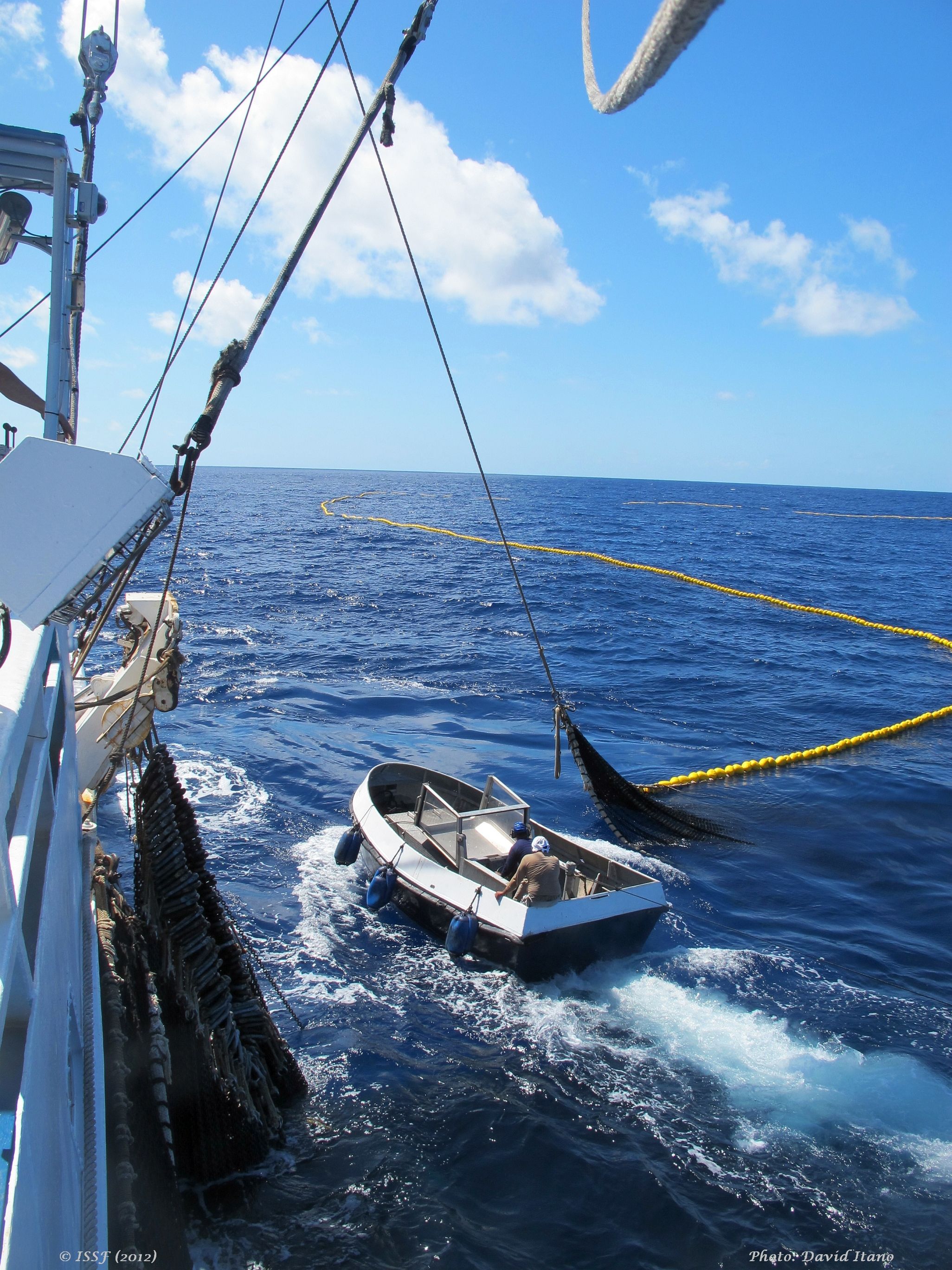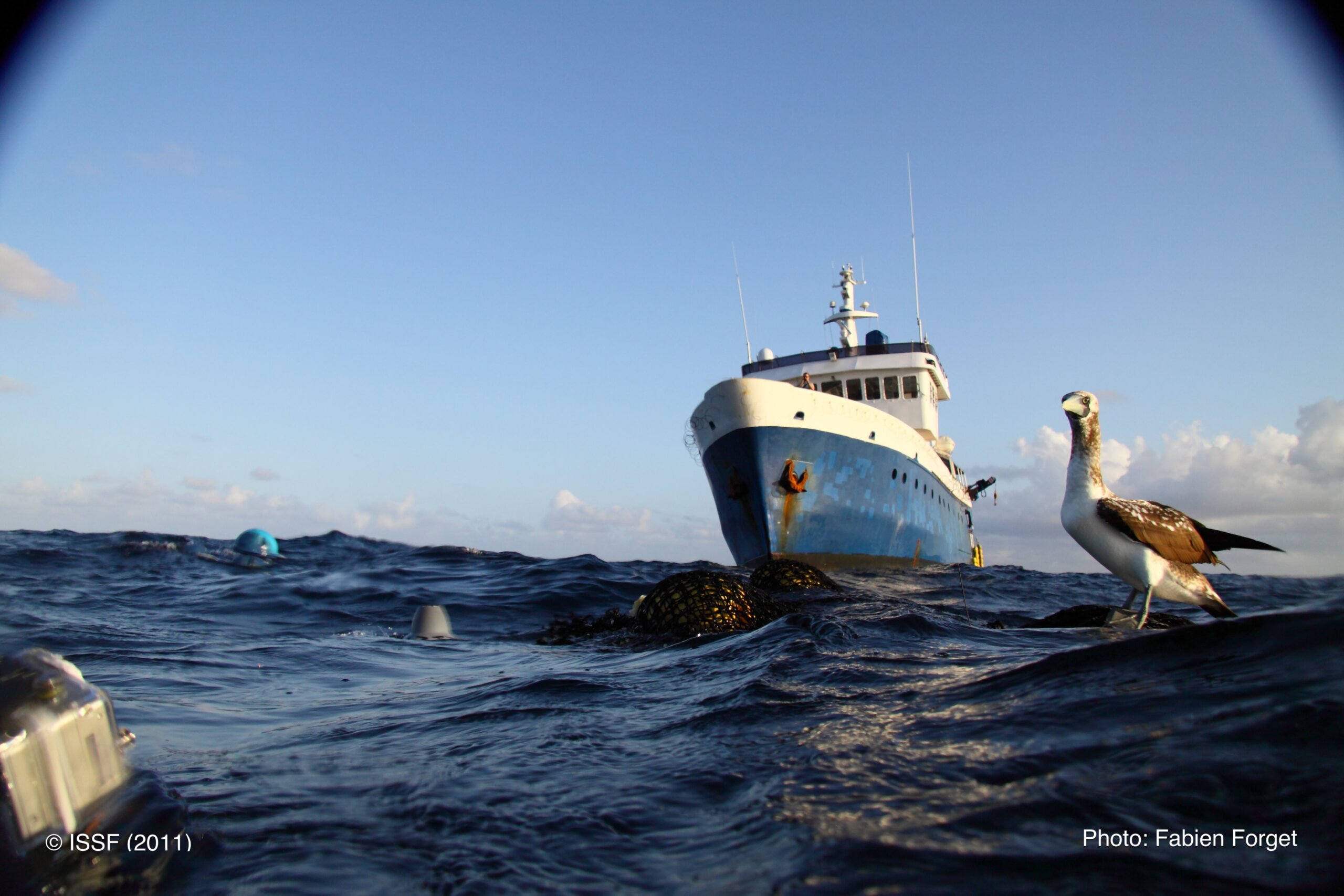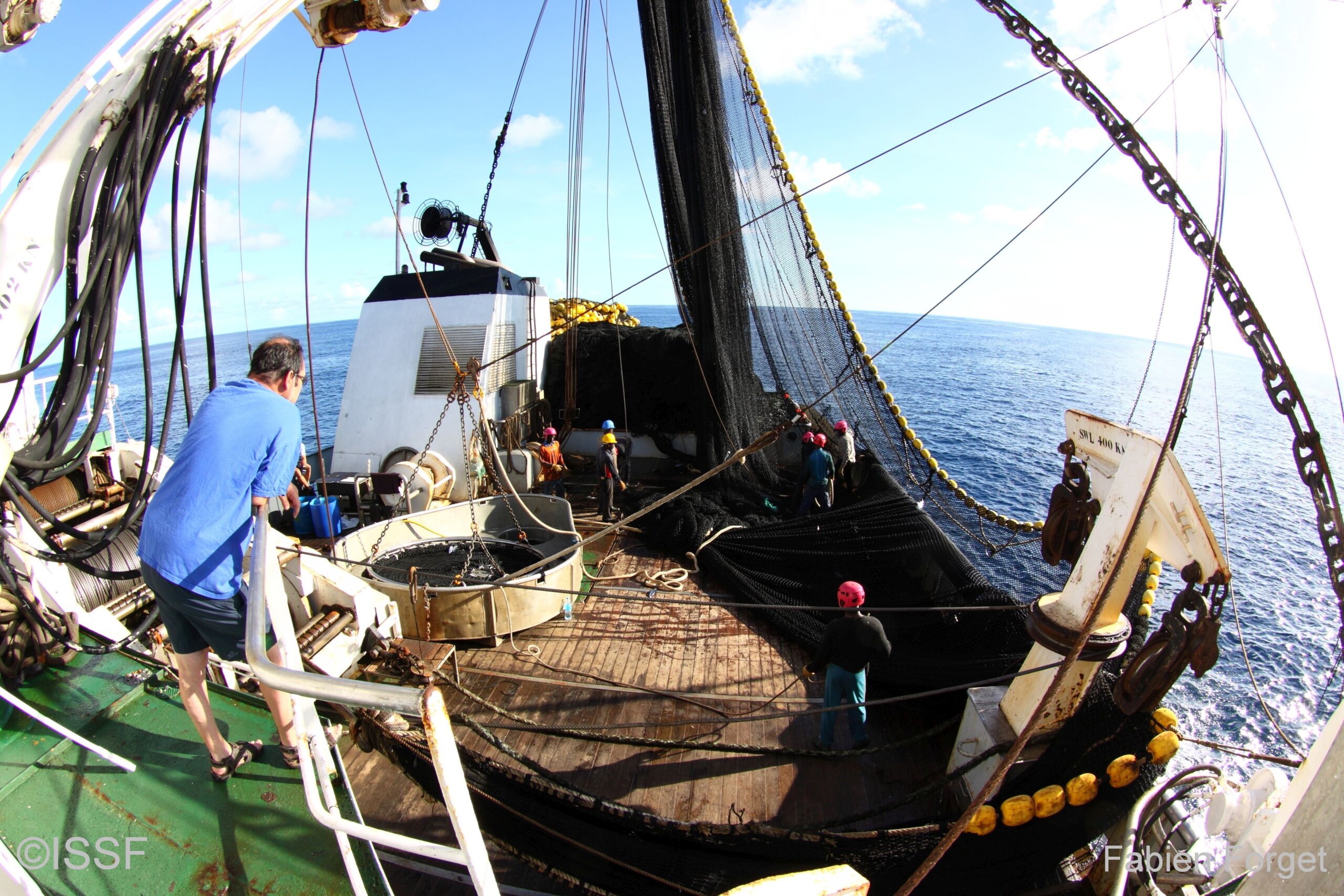
Promoting Fisher Gear That Can Better Protect the World’s Largest Tuna Fishing Region
ISSF’s new Guide to Non-entangling and Biodegradable FADs equips the Western and Central Pacific Fisheries Commission (WCPFC) with scientific research to back stronger sustainability measures for FAD fishers in its region.
The Western and Central Pacific Fisheries Commission (WCPFC) oversees the long-term conservation of highly migratory fish stocks, including tunas, in the western and central Pacific Ocean. Four subsidiary bodies support the Commission’s work and meet in the months prior to the December WCPFC annual meeting. One such group meets this week: the Technical and Compliance Committee (TCC), WCPFC’s “enforcement” committee.
The TCC reviews member states’ adherence to Commission decisions and monitors individual countries’ implementation of WCPFC conservation measures. The TCC also makes recommendations to encourage, improve and enforce members’ compliance with Commission decisions. Finally, the TCC coordinates with the WCPFC Scientific Committee to ensure consistent advice is provided.
Given the TCC’s crucial role at WCPFC — managers of the world’s largest tuna fishing grounds — ISSF has long participated in TCC meetings. As we prepare for the TCC gathering this week in Pohnpei, we are taking this opportunity to urge progress on the adoption and implementation of fish aggregating devices (FADs) that are both non-entangling and biodegradable.
The Path Toward a More Sustainable FAD
Since our founding in 2009, ISSF has researched how to reduce FADs’ impacts on marine ecosystems. And since 2015, we have partnered with scientists, fleets, RFMOs and the FAO to find the best non-entangling designs and vegetal, biodegradable materials for FADs.
These research projects have spurred large-scale deployments of more than 2,000 biodegradable FADs in the Indian and Eastern Pacific Oceans to test different materials and constructions. The culmination of this ongoing effort is the new ISSF Guide to Non-entangling and Biodegradable FADs, which documents — for the first time — detailed guidance on constructing biodegradable FAD rafts and tails.
ISSF and its partners are optimistic that the collaborative research recommendations in the guide will catalyze fisheries managers to step up efforts in addressing critical challenges.
Workshops in the Western and Central Pacific Ocean
ISSF is pleased that last year WCPFC adopted measures requiring fleets to begin using lower-entangling FADs in January 2020. It’s also positive that the Commission has agreed to consider adopting measures for fully non-entangling FADs and/or biodegradable materials in FADs next year.
To support this important progress, ISSF — in collaboration with the U.N. FAO-GEF-funded Common Oceans ABNJ Tuna Project — hosted four biodegradable FAD workshops in the Western and Central Pacific Ocean (WCPO) in 2019: in Papua New Guinea, the Federated States of Micronesia (FSM), the Philippines and the Marshall Islands.
After the workshops, a pilot project to test 100 biodegradable FADs with the Carolina Fishing Company fleet based in FSM was launched. Our partner scientists used lessons from the workshops and pilot project to plan a potential WCPO-wide biodegradable FAD research project that considers the regional characteristics of FADs and fleet behaviors.
Arming the Committee and the Commission for Science-Based Success
The WCPFC, interested fleets and members, the Pacific Community (SPC), the Pacific Islands Forum Fisheries Agency (FFA) and the Parties to the Nauru Agreement (PNA) have already shown strong leadership for improving FAD management and fisheries conservation in the WCPO.
It’s clear that they understand just how crucial these efforts are in protecting their region’s critical natural resource: They appreciate that non-entangling and biodegradable FADs can help reduce pollution entering the marine environment from fishing and help minimize entanglement of species like oceanic whitetip sharks. This week, the TCC has the opportunity to lend strong support to the WCFPC continuing on the path toward mandatory use of these improved FADs.
As we participate in this week’s TCC meeting and look to the Commission meeting and beyond, we urge member nations and seafood companies to embrace the latest science-based tools and resources that ISSF and our partners have to offer.
Through the ISSF Guide to Non-entangling and Biodegradable FADs, in-region workshops, pilot projects, and more, we are eager to strengthen existing partnerships and forge new ones to ensure the success of fully non-entangling and biodegradable FADs in the WCPO.


